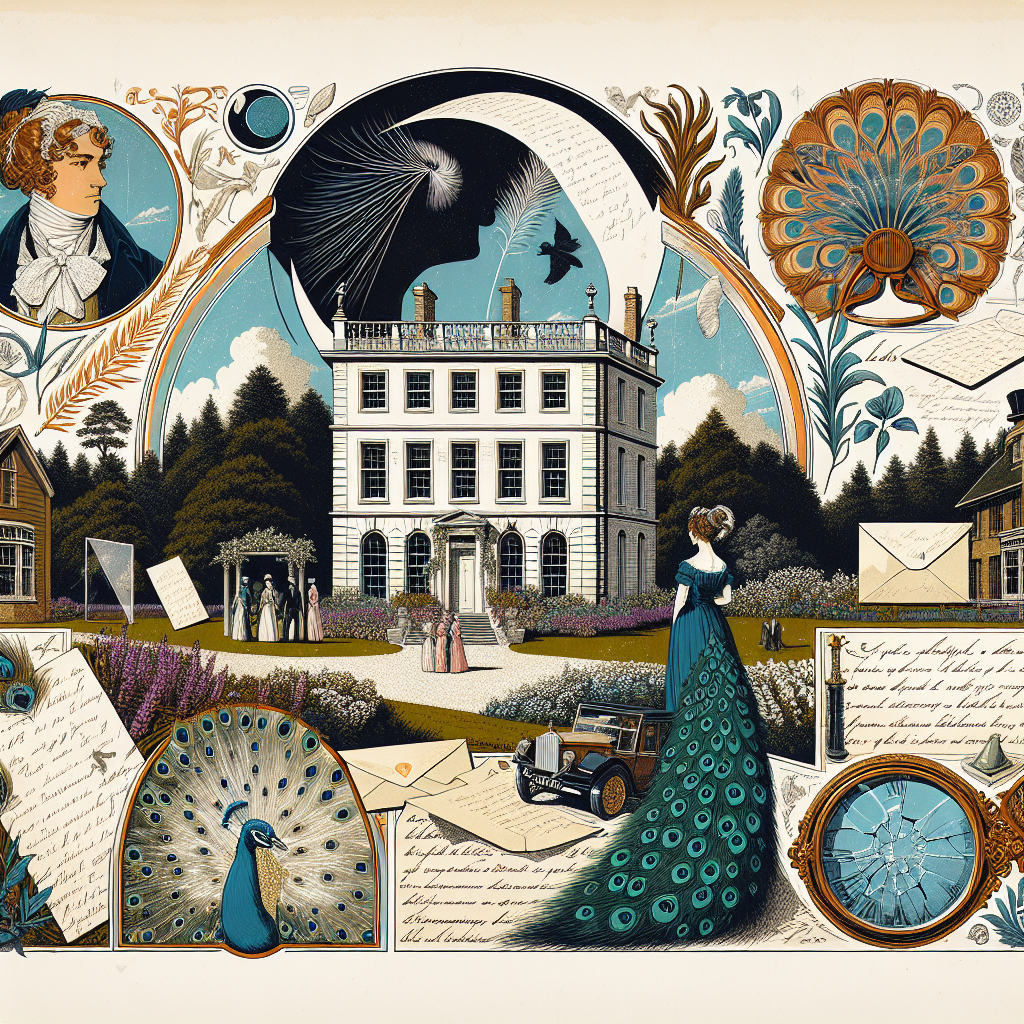Why You Shouldn’t Miss Pride and Prejudice by Jane Austen: Timeless Romance and Wit Await!
Introduction:
Pride and Prejudice, first published in 1813, is arguably Jane Austen’s most beloved work. Despite its initial release over two centuries ago, the novel continues to captivate readers with its sharp social commentary, endearing characters, and time-tested romantic plot. Jane Austen, known for her keen observations of the human condition and the societal conventions of her era, crafts a narrative that is as relevant today as it was in the early 19th century. This timeless piece of literature is significant not only in Austen’s oeuvre but also within the canon of English literature, forming an indispensable part of both academic study and leisurely reading.
Themes:
Central to Pride and Prejudice are themes of love, marriage, and social class. Austen masterfully touches upon the intricacies of human relationships, exploring how pride and prejudice — hence the title — impede the natural course of love and understanding. From the initial misunderstandings between Elizabeth Bennet and Mr. Darcy to their eventual mutual recognition and respect, Austen illustrates that overcoming one’s shortcomings is crucial for true connection.
Another predominant theme is the societal pressure surrounding marriage, particularly for women in the early 19th century. The Bennet family’s predicament, driven by the need to secure favorable marriages for the Bennet sisters, exemplifies the financial and social implications of marriage, thus anchoring the novel in its historical context.
Character Development:
Elizabeth Bennet:
Elizabeth Bennet, the novel’s protagonist, is a blend of wit, intelligence, and strong will. Over the course of the narrative, she evolves from a young woman quick to judge to one who is open to reconsideration and growth. Her initial prejudice against Mr. Darcy, fueled by his aloof demeanor and her misplaced trust in Mr. Wickham, softens as she gradually discerns the true nature of both men.
Mr. Darcy:
On the other hand, Mr. Fitzwilliam Darcy starts as the epitome of pride, perceived as haughty and dismissive. His transformation is arguably even more striking. Through carefully nuanced narrative and dialogue, Austen reveals Darcy’s underlying integrity and vulnerability, particularly in his second proposal to Elizabeth, where he acknowledges her reproof of his arrogance and condescension.
Supporting Characters:
The supporting characters, ranging from the obsequious Mr. Collins to the high-spirited Lydia Bennet, enhance the novel’s exploration of social hierarchies and varying moral compasses. Each character serves as a critical foil or enhancement to the main storyline, contributing to the broader tapestry of social interaction and personal development.
Narrative Techniques:
Austen’s use of free indirect discourse enables readers to delve deeply into characters’ thoughts and emotions, creating an intimate, multi-faceted perspective. This technique is evident in scenes such as Elizabeth’s reflections after reading Darcy’s letter, which re-contextualize her previous interactions and prompt her to reassess her judgments.
Dialogue also plays an essential role, specifically in scenes like the banter between Elizabeth and Darcy. Their exchanges are not merely conversations but battlegrounds of wit and perception, adding layers to their relationship and advancing their character development.
Cultural, Social, and Historical Contexts:
Marriage and Social Mobility:
The novel reflects the limited avenues for women’s social mobility in the early 19th century. The Bennet sisters’ financial and social futures hinge almost entirely on securing advantageous marriages, a reality that underscores the precarious position of women within that society. The urgency of Mrs. Bennet’s matchmaking, though often portrayed humorously, is rooted in the legitimate concern for her daughters’ welfare in a male-dominated world.
Gender Roles and Expectations:
Austen subtly critiques the gender roles and expectations of her time. Elizabeth’s defiance of norms — her refusal of Mr. Collins and her insistence on marrying for love rather than convenience or security — is revolutionary. Her character challenges the contemporary notion that women should be passive and compliant, positioning her as a forerunner of feminist thought.
Legacy and Influence:
Literature:
Pride and Prejudice has left an indelible mark on literature, inspiring countless adaptations, spin-offs, and reimaginings. From the 1940 film adaptation starring Greer Garson and Laurence Olivier to contemporary retellings like Bridget Jones’s Diary and The Lizzie Bennet Diaries, the novel’s themes and characters have endured, transcending time and cultural boundaries.
Cultural Impact:
Moreover, the character of Elizabeth Bennet has become an icon of literary heroines, embodying intelligence, independence, and moral fortitude. Her influence is evident in various media and literary creations, from modern feminist discourse to popular romance novels.
Academic Significance:
In academic circles, Austen’s work is a staple, continually analyzed for its narrative strategies, thematic depth, and social commentary. Pride and Prejudice offers rich material for scholarly exploration, ranging from its linguistic style to its portrayals of class and gender dynamics.
Conclusion:
Pride and Prejudice is more than a mere romance novel; it is a mirror reflecting the complexities of human nature and societal norms. As readers engage with the narrative, they are invited to reflect on their own biases and the societal structures that shape their lives.
Reflective Questions:
- How do Elizabeth’s and Darcy’s transformations throughout the novel prompt us to think about personal growth and self-awareness in our own lives?
- In what ways do the societal pressures and gender roles depicted in the novel resonate with contemporary social issues?
- What can modern readers learn from Austen’s portrayal of communication, particularly in how misunderstandings can affect relationships?
By considering these questions, readers can appreciate the enduring relevance of Pride and Prejudice, recognizing its capacity to provoke thought and inspire change long after the final page is turned.
[Advertisement]
Looking to find deeper meaning in the books you love? Discover how ANY book relates to positive biblical principles with Books and Scripture GPT‘ from BGodInspired.com. Click here to explore the connections that might surprise you!
[Advertisement]

